Premium Only Content
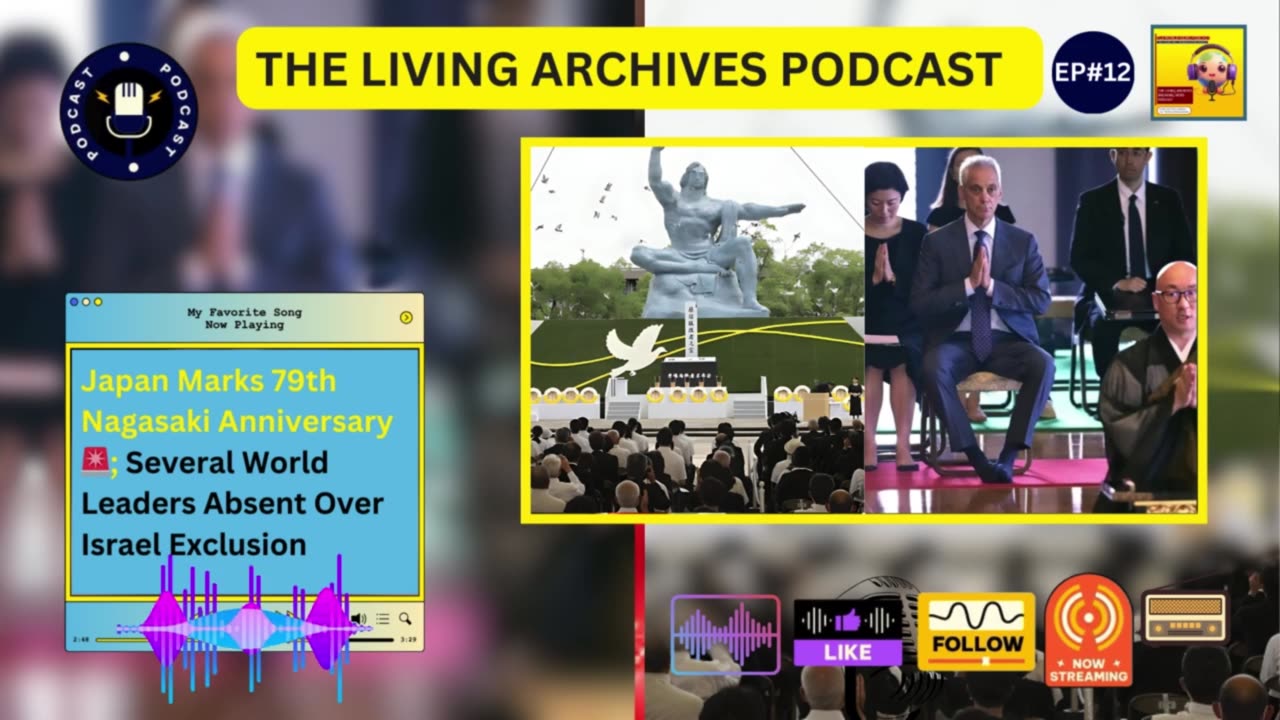
Japan Marks 79th Nagasaki Anniversary; Several World Leaders Absent Over Israel Exclusion
Nagasaki, Japan on Friday commemorated the US atomic bombing of the city in 1945, while refusing to invite Israel to the ceremonies amid its continuing war on Gaza.
At 11.02 a.m. local time (0202GMT), the exact moment a US B-29 airplane released its bomb over Nagasaki, the city fell silent in remembrance.
The tragic event at the end of World War II is especially significant as Nagasaki remains the last place in history to have suffered an atomic bomb attack.
"The government of Japan, the only state attacked by atomic bombs in war, must express a serious attitude of pursuing a world without nuclear weapons," Nagasaki Mayor Shiro Suzuki told a ceremony marking the anniversary.
"As a step toward this, we call for the Japanese government to sign and ratify the Treaty on the Prohibition of Nuclear Weapons as soon as possible," he said, as quoted by Japan’s Mainichi daily.
He also called for the Japanese government "to firmly uphold the principle of peace embodied in the Constitution of Japan and to demonstrate its leadership in international efforts to ease the heightened tension in Northeast Asia and advance disarmament in the region, such as the Northeast Asia Nuclear-Weapon-Free Zone initiative."
The decision was “not politically motivated,” he added.
The central government of Japan, one of the members of G7, refused to comment on Nagasaki’s decision not to invite Israeli officials.
US Ambassador to Japan Rahm Emanuel and British Ambassador to Japan Julia Longbottom are both skipping the ceremony this year in response to Nagasaki not inviting Israel.
The no-show by the two countries drew protests outside their diplomatic missions in Tokyo on Thursday.
The US ambassador to Japan skipped a ceremony on Friday marking the 79th anniversary of the atomic bombing of Nagasaki in protest at Israel not being invited. Rahm Emanuel instead attended a prayer meeting at a Tokyo temple with Israeli ambassador Gilad Cohen and Britain's Julia Longbottom, who also boycotted the Nagasaki event.
On August 9, 1945, the United States dropped an atomic bomb on Nagasaki, killing 74,000 people including many who survived the explosion but died later from radiation exposure. The bomb fell three days after the first nuclear bomb hit Hiroshima and killed 140,000 people. Japan announced its surrender in World War II on August 15, 1945.
Former US ambassador John Roos in 2010 became the first American representative to attend the Hiroshima commemoration and followed suit in Nagasaki two years later.
Nagasaki's mayor, Shiro Suzuki, has insisted that Cohen's exclusion from the annual event in the southern Japanese city was "not political". Instead, it was to avoid possible protests over the Gaza conflict and ensure a "smooth ceremony in a peaceful and solemn environment."
But Emanuel, former chief of staff for ex-president Barack Obama, on Friday rejected this.
"I think it was a political decision, not one based on security, given the prime minister (of Japan) is in attendance," he told reporters after the ceremony at the Buddhist temple.
The snub drew "a moral equivalence between Russia and Israel -- one country that invaded versus one country that was a victim of invasion," he added. Russia and ally Belarus have not been invited to either Nagasaki or Hiroshima since Moscow's 2022 invasion of Ukraine.
Give it a Listen💖
News Voiced and Reported by: Soha.M
-
 LIVE
LIVE
The Quartering
51 minutes agoTrump's Tariffs Already Work, Blackhawk Pilot Coverup, DNC Makes Insane David Hogg Appointment
3,949 watching -
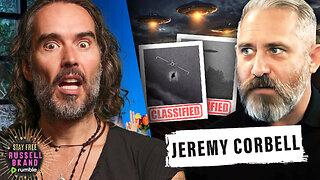 DVR
DVR
Russell Brand
22 hours agoUFOs, Whistleblowers, and Government Lies – The Truth with Jeremy Corbell – SF530
96.6K14 -
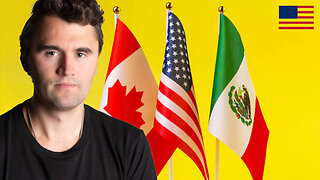 LIVE
LIVE
The Charlie Kirk Show
1 hour agoThe Most Beautiful Word in English + Confirm Tulsi! | Navarro, McCain, Posobiec | 2.3.2025
12,767 watching -
 LIVE
LIVE
Michael Franzese
1 hour agoRATING Trump’s First Two Weeks In Office
605 watching -
 LIVE
LIVE
Dr Disrespect
2 hours ago🔴LIVE - DR DISRESPECT - TARKOV - ZERO TO HERO RAIDS ONLY
3,857 watching -
 1:43:17
1:43:17
Benny Johnson
2 hours agoBREAKING: Mexico SURRENDERS To Trump, Locks Down Border | Mass FBI Firings, Deep State PURGE in DC
61.6K66 -
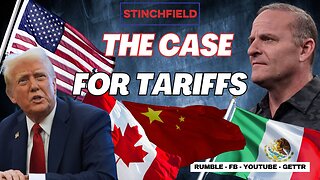 1:01:48
1:01:48
Grant Stinchfield
1 hour ago $0.89 earnedTrump's Tariffs are Already Working... Here's Why...
7.17K2 -
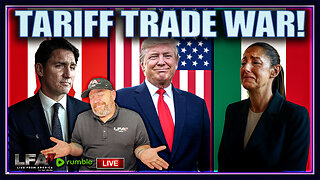 2:02:48
2:02:48
LFA TV
1 day agoTARIFF TRADE WAR! | LIVE FROM AMERICA 2.3.25 11am
52.9K20 -
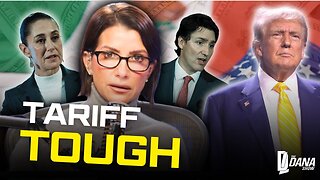 LIVE
LIVE
The Dana Show with Dana Loesch
1 hour agoTRUMP IMPOSES TARIFFS ON IMPORTS FROM CANADA, CHINA & MEXICO | The Dana Show LIVE On Rumble!
618 watching -
 LIVE
LIVE
Major League Fishing
5 days agoLIVE! - Bass Pro Tour: Stage 1 - Day 4
168 watching